The content of the article
Delicious cakes, sweet candies and a tidbit of cake - every caring owner wants to please his mustache gourmet with a similar delicacy. The question of whether the cat family is allowed to eat sweets has been relevant for many decades. Let's figure it out together.
Physiological characteristics of taste buds
- If we take into account the numerous reviews of the owners, we can conclude that their cats are crazy about sweets. They eat chocolate, ice cream, cakes and other delicacies. Looking at this whole picture for the first time, it may seem that the cat is really enjoying the pleasure of such a meal.
- However, in reality, things are a little different. Cats are predators by nature, whose taste buds are not adapted to sweets. They simply do not perceive them.When such a treat reaches the tongue, the pet feels the taste of vegetable fat, milk, nuts, but not the main sweetener (sugar).
- This feature is explained by the fact that the cat has no gene in the DNA line that is responsible for the perception of sweet taste. In humans, this gene is available, so people can enjoy various sweets and catch even the most hidden notes.
- If we are talking about an animal omnivorous or herbivore, they need this gene. Because by their characteristics such individuals should receive carbohydrates, which are many in sweet dishes.
- But since cats are predators, they do not have a wild need for carbohydrates. Rather, four-legged pets are required protein compounds. Sugar in this case is not good, so there is no need to feel the sweet taste.
- Cats need to be able to identify the protein, in this they can be envied. Animals are able to determine its presence not only in taste, but also in smell. As for prey, cats feel how many hours ago she died.
- In search of an answer to your question, it is worth starting from the opinion of zoologists. As a result of long and numerous tests, they came to the conclusion that cats can not taste the taste of sweets, therefore they are not able to determine the amount of sugar consumed.That is, they can eat it immensely, therefore they often harm their body.
- For example, the pet feasts ice cream, because it feels in it notes of cream or milk. But in reality, it receives not only these components, but also a decent portion of sugar, which is not always safe for the body.
- Why cats can not eat sweet treats? Because it absorbs harmful carbohydrates, it will lead to poisoning and a significant deterioration in health.
Is chocolate allowed for cats?
- If you ask the veterinarian about whether cats are allowed to consume chocolate, he will say the following. The composition contains theobromine, which belongs to the group of alkaloids. For cats, this substance in cocoa beans is poisonous.
- Theobromine leads to increased heart rate and problems with intracranial pressure. The cat feels agitated, agitated, the pulse quickens. Very often, intoxication occurs fatal.
- Chocolate for your pet is toxic. Therefore, it is impossible to treat her even a small piece of such delicacy. You do not know for sure what dose of theobromine will be dangerous for the cat.Therefore, you can not simply calculate the right amount.
The danger of sweets for cats
- If the cat will receive carbohydrates in excess, they will begin to be deposited in large quantities in the form of fat. In this case, the deposits occur not only under the skin, but also on the tissues of all internal organs. As a result, the overall functionality of the body is significantly reduced.
- If you know that sweets lead to obesity, it is worth thinking about how dangerous they are for an animal. Do not give in to cat provocations, do not give her what she wants. Confectionery products are equally dangerous for young and old individuals in any position and in the presence of various ailments.
- A cat may have a weakened body, and you will not even know about it. Just one eaten candy can cause hair loss, blurred vision, drooling, itching and even inappropriate behavior in an animal. Pet may show excessive aggression or panic.
- Because of sweets, the cat will develop diseases of the oral cavity. This is another reason not to give the animal all sorts of delicacies, which contain sugar. In most cats, after consuming sweets, they begin to watereyes. If the pet overeats, then vomiting, malaise and diarrhea appear.
Urolithiasis and sweets
- Often, the disease in question develops due to impaired kidney function. Numerous studies have shown that over-eating sweets adversely affects the kidneys.
- Organs begin to grow significantly in size and work for wear. If the load on the kidneys is constant due to sweets, urolithiasis begins to develop, even in cats that have not had a predisposition to the disease.
Diabetes and sweets
- If you are still tormenting yourself with the question of whether it is worth giving sweets to an animal, think about how a diabetic can develop in a cat. The body of a pet is simply not adapted to process a large amount of incoming glucose.
- Plus, everything else the animal begins to produce insulin in large quantities. As a result, the body eventually ceases to be sensitive to such a substance. Thus, glucose levels increase in urine and blood. Diabetes is developing.
If you value the health of your beloved pet, do not give him sweets.Do not let the cat manipulate you. Ignore her desires for sweets. Find an alternative, visit the pet store and buy special treats for the animal.
Video: Can sweet dogs and cats?

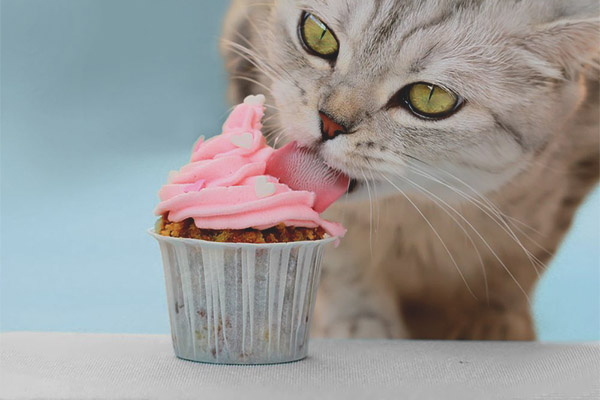
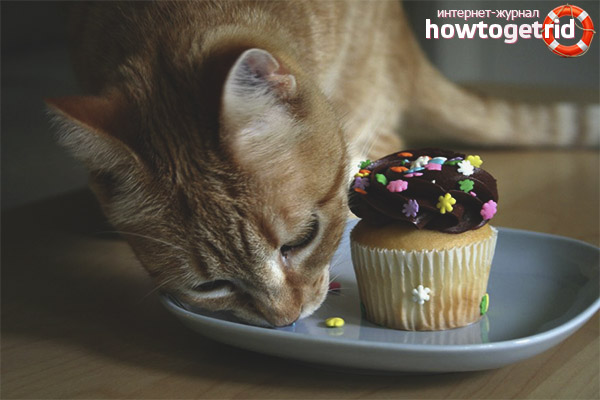
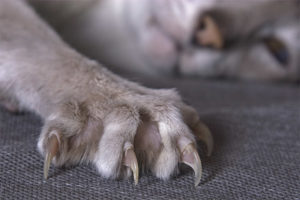
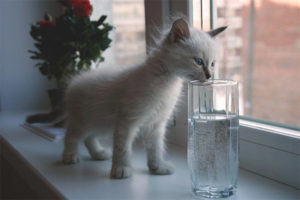
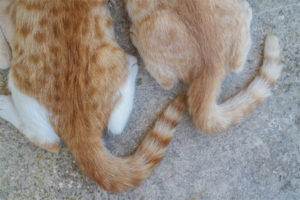
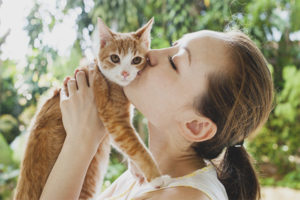
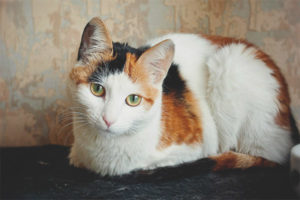
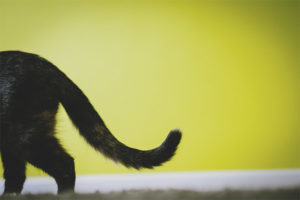
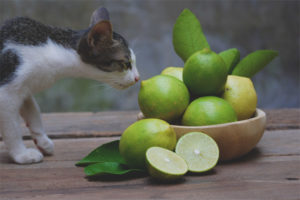
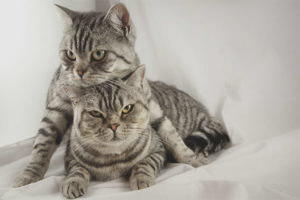
To send